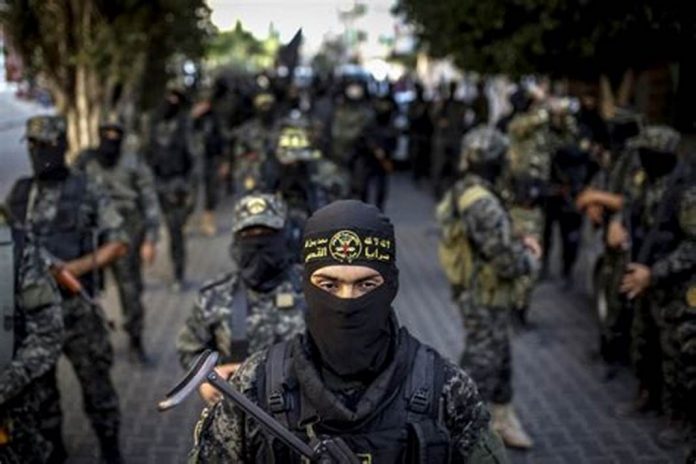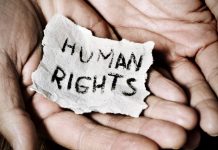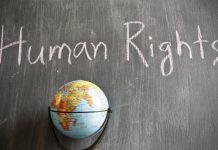This article is written by Shubhangi Agrawal, from Hidayatullah National Law University, Raipur (C.G.). This article talks about how government power influences freedom of speech and how it hinders fundamental human rights.
Table of Contents
Introduction
Last year in 2020, the Philippines introduced a law for anti-terrorism, which gave the government a right to eliminate, detain and label people within a vague definition of “terrorism.” In the current scenario of uncertainty and various attacks against human rights, this law gave the government unchecked powers to arrest people without warrants and keep people detained for weeks before they could be presented in court. This law is broad enough to categorize the social media post under this, but also it includes criminal offences for inciting people to perform anti-national activities.
While the government claims the main aim behind the introduction of this law is protecting and safeguarding human rights, this law has made them even more vulnerable. The law is against the international human rights law and restricts the working of the law in the country.
All these similar policies injected by the government in the name of increasing terrorism protect us or restrict us from expressing our opinions. Can we say that we have freedom of speech and expression, which is a human right at both the national and the international levels? This is an increasing matter of concern and we should have a look at it.
Freedom of speech – a fundamental human right
Freedom of speech is a right granted under Article 19 of the Indian Constitution that is available to all the citizens of the country, and it states that every citizen has the right to freedom of speech and expression. This is a right that is crucial to ensure that every citizen has a right to express their thoughts and expression through any medium of expression or social media, whatever one chooses to.
The right is not absolute and is subject to restrictions if the restrictions are for the interest of the society and security of the country or are restricted by the order of the court. Freedom of speech also includes freedom of the press, freedom of commercial speech, right to criticize, right to information, and right not to speak or be silent. However, all these can be restricted by certain limitations.
The International Covenant on Civil and Political Rights (ICCPR) also has mentioned under Article 19 that “everyone has the right to hold their opinions without any interference.” Further, Article 19(1) states that this right will include “the freedom to seek, impart and receive information and ideas of any kinds, which can be oral, in writing or in print or any other form which one chooses to of their choice.” ICCPR has further commented that the freedom of speech can never be suspended, not even in the case of an emergency. Freedom of speech is considered an element that cannot be curtailed since it can never be deviated from, even in case of emergency.
The restrictions permissible on this right as per ICCPR are provided by law under Article 19(3), and where ever necessary, the right may be made to “respect the right and reputation of others” or “for the national security.” Any unreasonable restriction on the rights of the people is not permissible; the restriction must be in line with Article 19(3) and should be proved lawful under the same. Where Article 19 provides the government to restrict speech but conditions imposed to it is that the above terms are satisfied. Article 20, for the same law, mentions the prohibition of expression altogether, that is prohibiting anything which under the law “any advocacy of national, racial or religious hatred done to incite discrimination, hostility or violence.”
Both these Articles agree with each other as any action restricted under Article 20 must also fall under Article 19 to be justified as a limitation to the right. The point mentioned in all laws is that freedom of speech can be restricted subject to the country’s law, security, etc., of the country. The insight that can be obtained is what about people who are not declared guilty but are under suspicion of doing these acts. What is the basic human right of speech to a terrorist?
Controlling freedom of speech through terrorism
Terrorism is a defeat in a democratic society that is highly undesirable and is the against the vital public interest. While putting a break in these acts is necessary, not all measures used to do so will have a justified reason. The introduction of anti-terrorism laws in various countries aftermath of significant terrorist attacks has somehow curtailed the basic functioning of the freedom of speech and expression.
For years the government has been controlling the speech of people who are suspected of acts of terrorism and keep them detained for weeks and months. The government has been doing several activities of surveillance and detention in the name of counter-terrorism, which leads to the defeat of the rights, especially the right to life, prohibition of human torture or inhuman behaviour, right to liberty, and security. Harming human rights in the acts of curtailing the vicious terrorist attacks and terrorists may even help to fulfil their cause. The government and the executive have the power to hold the values that we require to preserve from the terrorists who are trying to destroy the same.
The need for discussion
In the modern era, human rights have been politicized by most of the countries at an international level but these international voices also don’t care about rights. Nevertheless, we see human rights as an agenda that is falling during tough times. In a world where there is the rule of Islam, there is still a lack of equality for women, equal religion, and political freedom. The model of development which China follows is a comeback of political repression and economic liberalism that has also attracted various developing world countries to admire and adopt the same policy. The countries like Russia, Turkey, and when insular having political authoritarianism also backlogged in exhibit LGBT rights that have taken place before in many diverse countries. The campaigns for human rights which people used to perform in old traditions have flooded all over the society. These traditional approaches like slavery continues to exist. A recent report estimated that there are almost 30 million people who are forced to work against their will.
In times like this, the violation of human rights is still widespread, with human rights continuously flourishing. The use of human rights in the books has increased many times compared to the last centuries. It has been used more with words like constitutional and natural rights. People have criticized the government in recent decades which is becoming a distinctive item of human rights.
Government’s fear – a source of infringement of a basic human right
To look upon the July 2013 case of a bricklayer living in Rio de Janeiro, he was arrested and was never seen again, this matter was all among the people of the city. His disappearance was seen as a ruthless police response. The people pressured the government for investigation, which led to the arrest of 10 police officers, who were then charged for murdering and torturing the person. Furthermore, another factor is that Brazil, being one of the largest democracies in the world, is among the major countries that violate human rights. Every year thousands of people are killed by the police through executions.
These killings are the acts that are prohibited under human rights laws, and it is a matter of practice that is being in the official policies. Not only Brazil is such a country where this takes place, but this also includes other countries like India, South Africa, Iran, etc. These countries are suspected of criminals disappearing before formally getting charged or appearing in court. The judiciary or court system here is underfunded, and the pressure to combat crime is very much high which leads to employing extrajudicial methods by the police in the form of torture to extract a confession.
The reforms required
Throughout development and the increased cases of false governing, pointers have been set that the court should keep in might while governing-
- A few rights are being collectively mentioned under Article 4 of ICCPR, which cannot be suspended even in an emergency.
- The various left-out rights can be set aside by the condition mentioned in international human rights laws. Freedom of speech and expression can only be restricted in case the condition of restriction is being met as per Article 19(3).
- If human rights are being violated, which is done with misuse or abuse in the name of national security or counter-terrorism powers, effective remedies should be made available to the individual, which should be in proportion to the amount of damage suffered. This is another approach mentioned in Article 2(3) of ICCPR, which states that any human being whose human rights are violated has a right to have an effective remedy for such violation.
- The charges against any person committed to terrorism or harming national security must be decided by the judiciary and not politicians or public opinions or by the media.
These are a few steps and recommendations which the international body has taken which every country must add to avoid any unconstitutional killing for arrest. In the name of counter-terrorism activities infringement of the basic human rights of the people who are only suspected for the act and have not been declared as guilty by the court. The human rights of every person are protected until and unless they are proven guilty or prohibited by the law. This can only be done when the guilty person is presented before the law but a more concerning matter is that these cases happen even before the person has appeared before the court of law
Conclusion
The hard conclusion to avoid is that the government is still contributing to the violation of human rights, the example we have seen of Brazil. There are more examples of countries, somewhere around 150, that engage in torture. Why has the number of authoritarian countries increased so much? Why do women remain a subordinate class? Why do children continue to work? The truth is that human rights have not accomplished what they should have. The objectives of the law are still not made by the government. There is very little evidence that the human rights treaties being agreed upon internationally have improved the well-being of the people. The reason is that human rights were never a universal thing that people had and believed they could only be forced upon by the international authorities.
The step which can be done to avoid the human rights violation of anti-terrorism law is – there must be a protocol, early commission for the vigilance of adoption of new anti-terrorism legislation. This should be subjected to human rights proofing and then provided that democratic oversight of security services must be done with proper analysis and recommendations than by the specialized people. Through this assistance in the topics with the authorities, it should regularly focus on the human rights safeguarding and not a violation.
References
- https://globalfreedomofexpression.columbia.edu/wp-content/uploads/2016/01/A-Callamard-National-Security-and-FoE-Training.pdf
- https://rm.coe.int/16806db6b2
- https://www.coe.int/en/web/commissioner/thematic-work/counter-terrorism
LawSikho has created a telegram group for exchanging legal knowledge, referrals, and various opportunities. You can click on this link and join:
 Serato DJ Crack 2025Serato DJ PRO Crack
Serato DJ Crack 2025Serato DJ PRO Crack











 Allow notifications
Allow notifications


